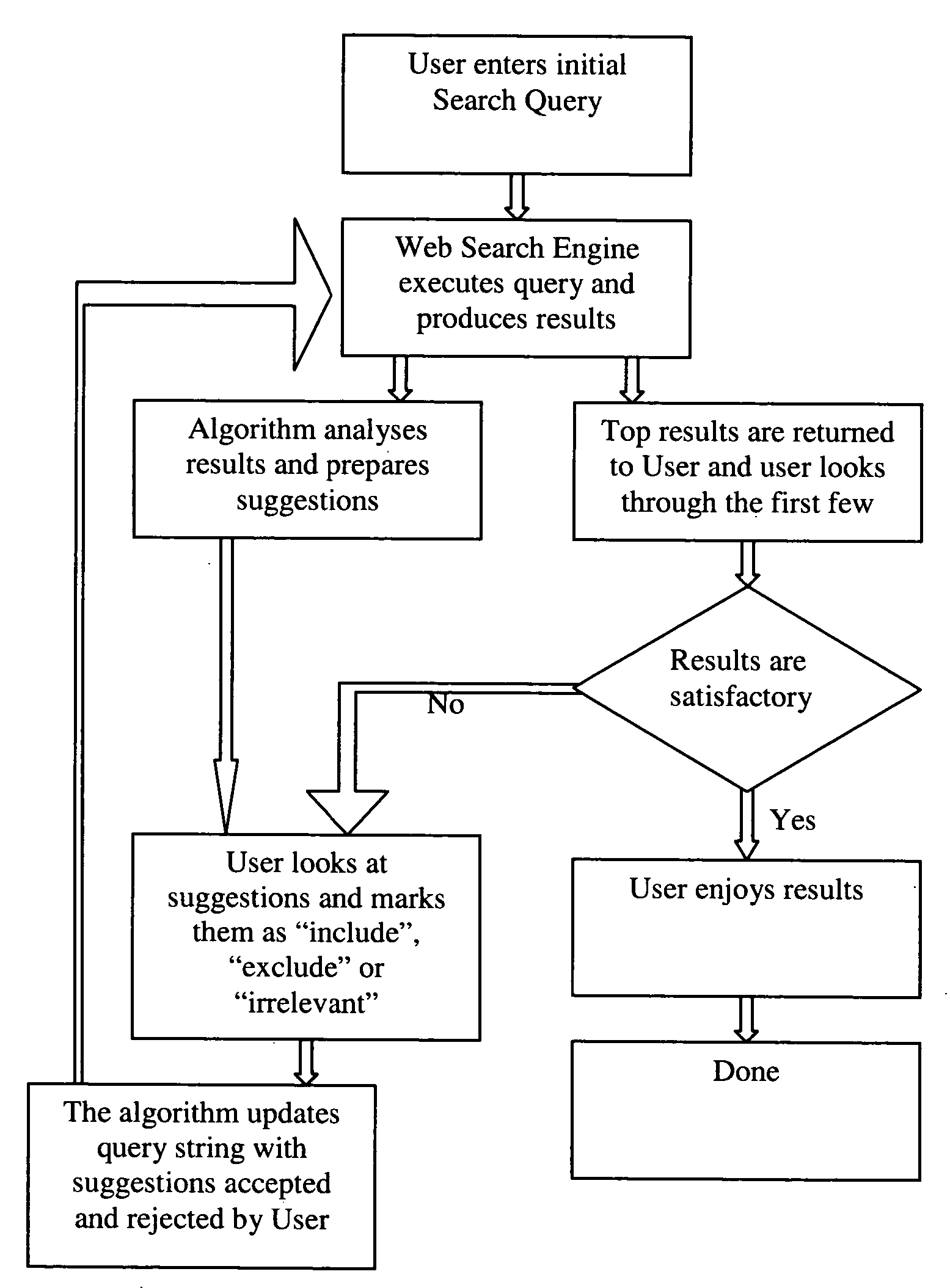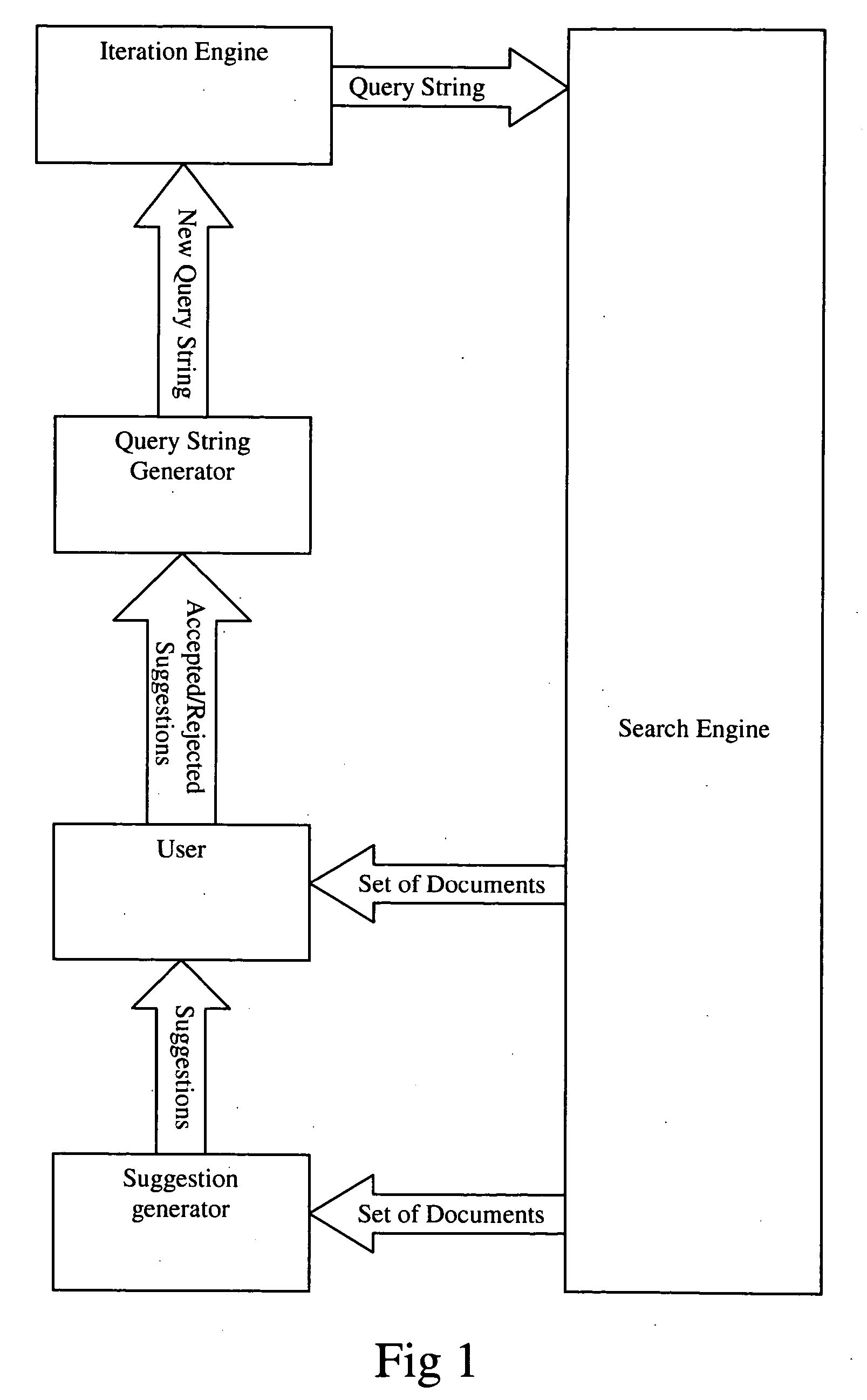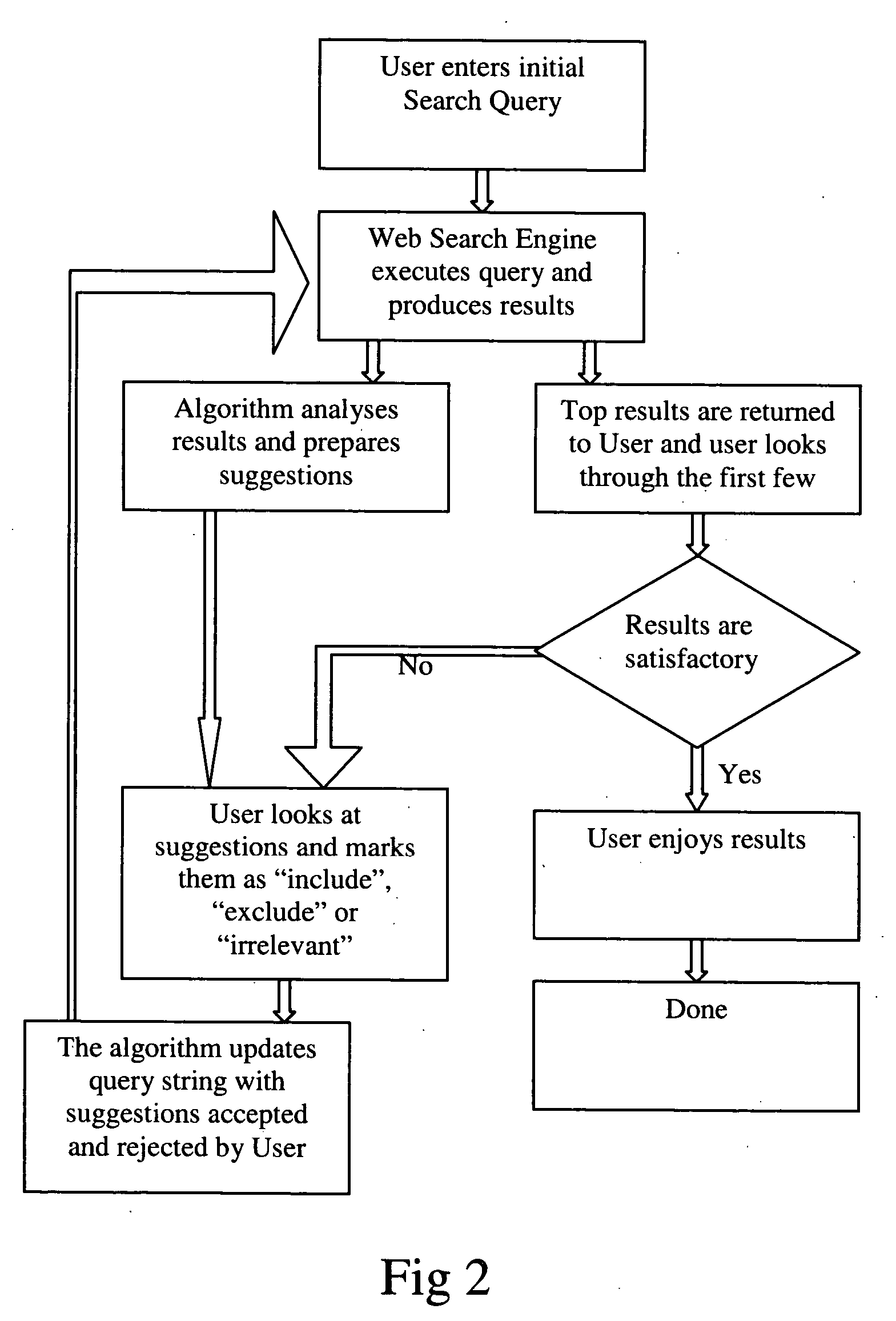Search wizard
- Summary
- Abstract
- Description
- Claims
- Application Information
AI Technical Summary
Benefits of technology
Problems solved by technology
Method used
Image
Examples
Embodiment Construction
[0106] The present invention has a number of enhancements above and beyond the existing search algorithms and interfaces. It allows users to find information that is almost impossible to find with the existing search tools.
[0107] In the preferred embodiment described in this chapter we use a commercial search engine such as Yahoo or Google via HTTP interface these services expose. The invention however is not limited to any of these and can be used for example to search any relational databases, USPTO database, retailer databases, etc.
[0108] When searching the Web using a search engine like Google, users often have problems formulating the query for their search. Usually they type in a keyword or a sequence of keywords that they think describe the thing they are searching for. More often than not, the search engine has a different understanding of the query and returns results that are different from what user expected. Users must then refine their query by adding, removing or cha...
PUM
 Login to View More
Login to View More Abstract
Description
Claims
Application Information
 Login to View More
Login to View More - R&D
- Intellectual Property
- Life Sciences
- Materials
- Tech Scout
- Unparalleled Data Quality
- Higher Quality Content
- 60% Fewer Hallucinations
Browse by: Latest US Patents, China's latest patents, Technical Efficacy Thesaurus, Application Domain, Technology Topic, Popular Technical Reports.
© 2025 PatSnap. All rights reserved.Legal|Privacy policy|Modern Slavery Act Transparency Statement|Sitemap|About US| Contact US: help@patsnap.com



